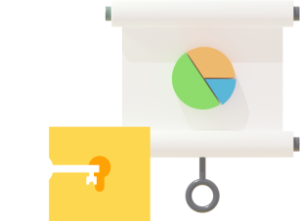What are math heuristics?
Heuristics are simple rules or mental shortcuts that help us understand a problem or arrive at a decision quickly.
If you’ve followed a “rule of thumb”, you’ve used a heuristic.
If I’m sending an important e-mail, I will always review it twice, at different timings during the day, to minimise the possibility of making an embarrassing mistake!
Likewise, math heuristics are proven tactics we can use to solve problems effectively — by being more strategic, systematic, and conscientious.
Let’s say you had to tighten a screw. You could go through the screwdrivers in your toolbox one by one, or you could approximate the size of the screw and narrow down your selection to the last 3 screwdrivers. Which method gets the job done faster?
How do math heuristics help my child with problem-solving?
As your child approaches upper primary (P5, P6), they’ll find that word problems become more complex — the approaches and solutions are less obvious.
Hence, knowing common math heuristics will give them the tools they need to tackle challenging problem sums that come up in their homework or exams.
Not only can it dramatically increase your chances of solving any Math problem and help you get started, it can also guide you along your thinking processes to reduce the effort and time needed when problem solving.
To prepare your child for PSLE questions, it helps to know a variety of ways to tackle any problem that comes their way. PSLE questions are complex, so mastering heuristics is like having every tool you could ever need in your toolbox!
We teach the heuristics that your child will learn in school in a way that is fun and easy to understand — just check out some of our videos below if you’re curious! We have many more of such videos in our system.
Why do parents need to know about math heuristics too?
Practicle’s math content covers all heuristics that are tested by MOE, but we recommend that parents have foundational knowledge to supervise their children, especially when preparing for exams.
Want to know how your child is performing? We’ll send you reports about how well they’ve mastered their math concepts and heuristics.
You’ll no longer need to rely on teachers for guidance and feedback all the time, or spend exorbitant amounts of money on assessment books.
What heuristics does MOE test for primary school mathematics?
According to the Singapore Mathematics framework developed by the Curriculum Planning and Development Division (CPDD) team at the Ministry of Education Singapore (MOE), the types of heuristics in Mathematics that can be applied to primary school math problems can be grouped as follow:
1. Visualise a problem
2. Make a calculated guess
3. Walk through the process
4. Simplify the problem
5. Consider special cases
Hence, it is crucial for your child to learn how to use them.
Here’s an example of a heuristic that your child will learn from P4-P6:
We have more of such math videos on our YouTube channel, and if you’d like to try to out our questions and receive question-specific video explanations, how about signing up for a free trial? No minimum commitment, cancel anytime.
How does Practicle teach math heuristics?
As a team of former teachers and game developers, we put a great deal of thought into making the learning experience in Practicle engaging for your kids using a 2-pronged approach:
1. It needs to be educationally sound and aligned with the school’s syllabus
2. It needs to stir interest and encourage kids to learn more, making it truly effective
#2 is where many math learning solutions fall short, especially traditional methods like tuition and assessment books. Students usually tune out quickly.
Practicle makes learning math heuristics fun, while ensuring your kids learn the proper skills needed to do well in their tests and exams.
Experience Practicle free, no commitment no hidden cost no lock-in
Try our learning platform free with a 7 day trial
and see if your child likes it.


